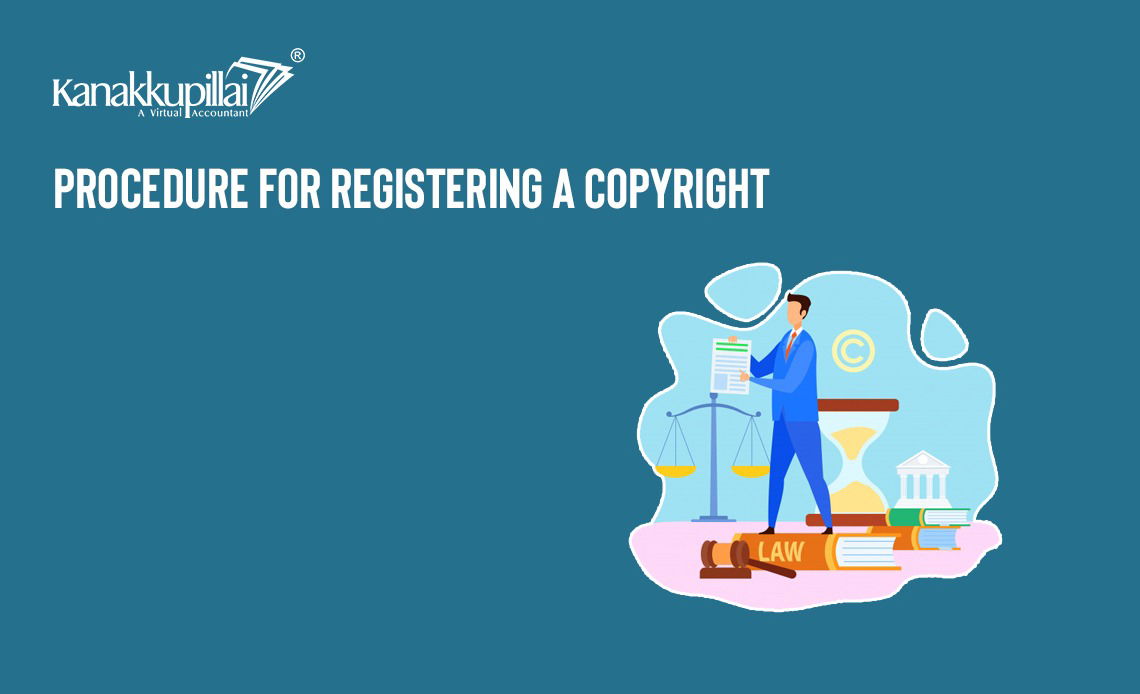A legal entitlement, copyright protects original creative works against illegal use or replication. It gives the producer special rights over their work, therefore enabling them to control its usage and distribution. As it creates a public record of your copyright claim and offers further legal advantages should any infringement, registering your work with the Copyright Office is very vital. This guide will walk you through the methodical process of registering a copyright in India, therefore guaranteeing that your creative works are legally protected.
What Can Be Copyrighted?
In India, copyright protection is provided for the following types of works:
- Literary works: Original written works, excluding computer programs, such as books, songs, plays, and articles.
- Musical works: Original compositions, including songs, tunes, and harmonies.
- Artistic works: Original visual products, including paintings, sculptures, and photos.
- Original motion pictures—including movies, videos, and television shows—are called cinematograph films.
- Original audio recordings, including music, voiceovers, and sound effects.
- Computer programs: Original software, including source code and generated code, as well as lists and collections.
Note that copyright does not protect:
- Titles, names, ideas, concepts, topics, methods, and short phrases: These are not ideal for copyright protection as they are not considered fresh artistic works.
Requirements for Copyright Registration
To register a copyright in India, the following standards must be met:
- Applications must be filed on Form IV along with a Statement of Particulars and a Statement of Further Particulars.
- Published Works: Three copies of the published work have to be sent.
- Unwritten Works: For unwritten works, a copy of the text must be sent to the Copyright Office for stamping.
- Signatures: The copyright application can be signed by the applicant or an accepted backer who has completed a Power of Attorney (POA) on behalf of the applicant.
- Fees: The required fees vary depending on the kind of job registered for. Paid by a demand draft, Indian postal order, or e-payment, these costs could vary in INR 500 to INR 40,000.
Step-by-Step Registration Process of Copyright
-
Prepare the Required Documents
To start the copyright filing process, gather important papers, including a finished Form IV, Statement of Particulars, and Statement of Further Particulars. For published works, provide three copies; for unreleased works, send one draft copy. If a supporter signs the application, include a Power of Attorney. Ensure all recommended fees are paid as per the Copyright Office rules.
-
Submit the Application
Choose between online or local filing ways to send your application to the Copyright Office. Online submissions can be made through the official website, while offline entries require sending the papers to the marked address.
-
Application Scrutiny
The Copyright Office will review your application for truth and thoroughness. If no complaints are made within 30 days, the registration process moves easily. In case of complaints, both sides will be informed, and a meeting will be set to handle any concerns.
-
Approval and Certificate Issuance
Upon successful inspection, an acceptance leads to the release of a copyright registration certificate. This final step usually takes 2-3 months from the date of filing. Be prepared for possible differences in processing time based on the complexity of the application and any complaints found during the review process.
Copyright Validity and Renewal
From the end of the year the work was first published or made accessible, copyright protection in India is valid for sixty years. This period spans artistic, literary, dramatic, musical, and creative works as well as cinematographic movies and sound recordings.
Renewal of copyright is not needed in India. The safety continues automatically for the set time. This means that the copyright holder does not need to take any extra steps to keep the protection once it has been given.
Conclusion
To legally protect your creative works in India, copyright registration is ultimately rather important. Following the suggested process and turning in the required paperwork will help you build a solid basis for defending your intellectual property rights. Recall that copyright protection doesn’t have to be renewed; it lasts 60 years. Under Indian law, infringement of copyright could result in harsh fines and even incarceration. To thus guarantee your rights are safeguarded and maintained, it is strongly advised to register your works with the Copyright Office. Don’t wait; start the required actions to protect your artistic activities right now.





